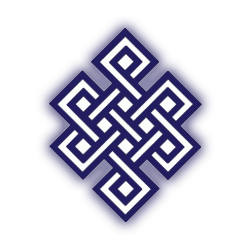“Instead of the progressive training in librarianship envisioned in 1948, with technical courses at the undergraduate level and professional courses at the master’s level, the master’s programs now carry the full burden of instruction in both skills and principles of librarianship.” (p.71)
 I would take that further to say that most students I talk to, and my own observations, view the MLIS program as nothing more than a vo-tech style introduction to the profession. To be perfectly frank, that makes a mockery of the whole institution of master’s degrees, which are perceived as upper level education at a more complex level than what is offered at the undergraduate level. Ironically, this means that we are perpetuating our own problems in regards to a lack of professional prestige and status by the very institution we hoped would solve those problems: the MLS degree. It is viewed by other academics as a “lesser” degree, and even within our own profession it is seen mostly as a “union card” gateway to professional advancement. Talk to any practicing librarian, and most will admit that even if they learned some important things about information studies in grad school, they did not need an MLS/MLIS in order to do the job they are doing. This indicates that over the course of the last 50 years the MLS Project has become exactly what it set out to dispel.
I would take that further to say that most students I talk to, and my own observations, view the MLIS program as nothing more than a vo-tech style introduction to the profession. To be perfectly frank, that makes a mockery of the whole institution of master’s degrees, which are perceived as upper level education at a more complex level than what is offered at the undergraduate level. Ironically, this means that we are perpetuating our own problems in regards to a lack of professional prestige and status by the very institution we hoped would solve those problems: the MLS degree. It is viewed by other academics as a “lesser” degree, and even within our own profession it is seen mostly as a “union card” gateway to professional advancement. Talk to any practicing librarian, and most will admit that even if they learned some important things about information studies in grad school, they did not need an MLS/MLIS in order to do the job they are doing. This indicates that over the course of the last 50 years the MLS Project has become exactly what it set out to dispel.
This relates to what Swigger breaks down as a difference between theory and competencies. As it stands, most MLS programs float somewhere in the middle, doing neither very well. The theory has been shoved aside for the sake of competencies, for the most part. The result, as Swigger describes it, is that “there is a paucity of theory to describe the relationships between the roles, functions, and activities of libraries and other social institutions, or the relationship between libraries and individuals.” This is reflected in a recent blog post “What IS a library?” http://librarianbyday.net/2011/11/19/what-is-a-library/ by Bobbi Newman concerning the difficulty of describing what a library is these days, which applies just as well to what a librarian is, which is really is hard to describe, without getting so esoteric as to be nonsensical. Compare to professions such as law or medicine: a lawyer practices law, and a medical doctor practices medicine. Even a scientist in the most esoteric branches can usually get away with a distillation of their profession, such as astrophysicist or anthropologist.
What have we got?
Chapter five also delves into the thornier, and still very unresolved issue, of what the name of our profession actually is. Library Science? Library Studies? Information Studies? Information Science? There are turf wars and rubric wars going on here that have as much to do with the changing nature of the profession due to the digital revolution as much as it does with not having a good definition to start with.
#

